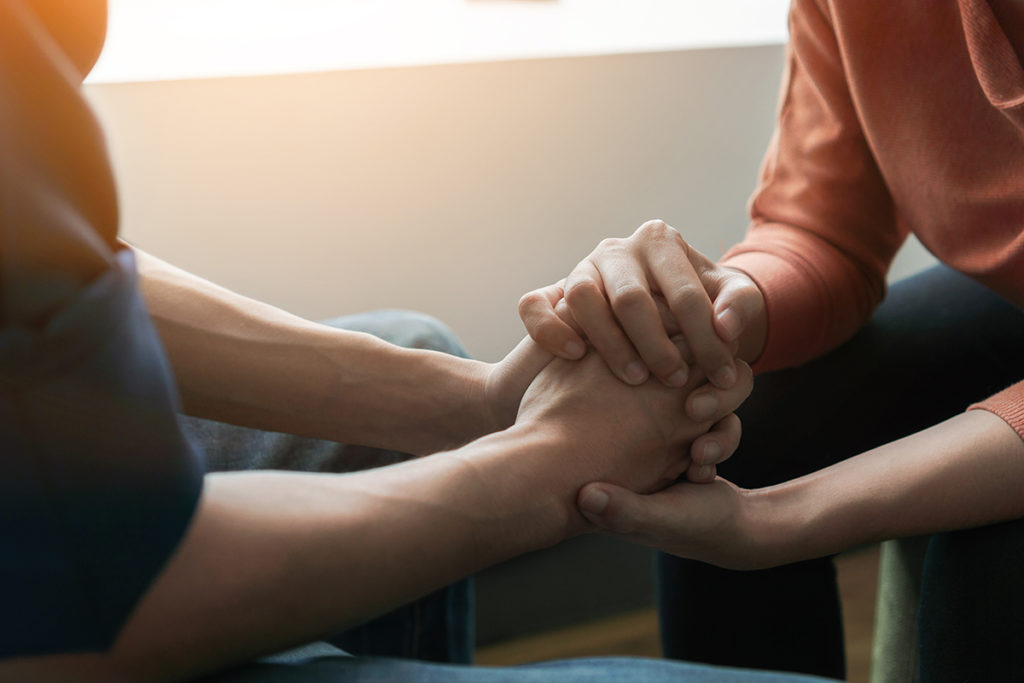Results of a survey conducted by the national Centers for Disease Control and Prevention indicate symptoms associated with anxiety and depression disorders “increased considerably” in the United States from April through June, compared with the same period last year. Younger adults were disproportionately affected, along with racial and ethnic minorities, essential workers and unpaid adult caregivers.

According to an NPR story on the CDC results, several studies are underway to examine teen mental health in the pandemic era, and experts are worried they’ll show a corresponding rise in suicidal ideation among youth.
In recognition of National Suicide Prevention Awareness Month, we reached out to OCDE K-12 School Counseling Services Coordinator Luz M. Arellano to talk about how local schools are addressing mental health needs, how OCDE is supporting these efforts, and how we all can help friends and loved ones who might be struggling through a crisis.
***
What impacts are we seeing of the pandemic on mental health?
There is no doubt that the pandemic has impacted the mental health of most, if not all, from children to adults. Feelings of isolation, preoccupation, uncertainty and fear, to name a few, are heightening the levels of stress and anxiety in our children and adults. When adults are dysregulated, children become dysregulated. Our students can notice when the adults are stressed, and that inevitably impacts their sense of safety (at home) and their learning experience. The narrative I am hearing from school counselors in Orange County is that students are grieving the loss of relatives, or loved ones, and are fearful for their parent’s health. Many students are also reporting more depressive symptoms induced by the monotony and social isolation.
How are school districts reaching students who may be suffering emotionally?
School counselors are working hard and finding creative ways to connect and engage with students. School counselors are coordinating (workshops such as) Lunch and Learn and Wellness Wednesdays, and they’re developing virtual bitmoji offices and virtual calming rooms to teach students about coping skills and stress management, among many other social emotional development topics. I have also seen videos where positive and encouraging messages are communicated to students such as “It’s OK to NOT be OK” and encouraging students to reach out if feelings become overwhelming.
How is OCDE supporting this work?
We have been focusing on providing professional development opportunities covering various topics such as best practices for running virtual group counseling, technology tools to develop universal and supplemental school counseling programs to suicide prevention and risk assessment training. We will soon begin a series of Coffee with Orange County School Counselors to provide an opportunity for collaboration and sharing of ideas with one another.
What are some ways we can assist friends and family members who are in crisis?
It can feel overwhelming to learn that someone we love or care deeply about may be in crisis and considering the idea of suicide. However, it’s important to remember that these emotions and statements must always be taken seriously. Taking action is always the best choice. The first thing we can do is become aware of the warning signs of suicide, including feelings of hopelessness, engaging in risky behaviors or lacking a sense of purpose. If we suspect that someone may be considering suicide, seek support for them immediately. It is best to share this information with someone who is trained to assess and evaluate the risk for suicide. School-based mental health professionals — school counselors — can assess a student virtually if necessary, and if you are seeking support for an adult, organizations such as NAMI are a good place to start.
How can those in crisis get help?
There are many resources available at no cost.
- The Orange County Health Care Agency. The HCA has put together a list of mental health and substance use disorder resources in Orange County.
- The National Suicide Prevention Lifeline. 1-800-273-8255 is a 24-hour, toll-free, confidential suicide prevention hotline that’s available to anyone in suicidal crisis or emotional distress. It provides Spanish-speaking counselors, as well as options for deaf and hard of hearing individuals.
- The Crisis Text Line. The Crisis Text Line is the only 24/7, nationwide crisis-intervention text message hotline. Text HOME to 741-741.
- OC WarmLine. Available 24/7, the OC WarmLine is a free and confidential telephone service providing emotional support and resources to Orange County residents. Call 714-991-6412.
- NAMI Orange County. NAMI is the nation’s largest grassroots mental health organization. Its local affiliate, NAMI Orange County, has been offering online classes and support groups via Zoom.Visit www.namioc.org.
